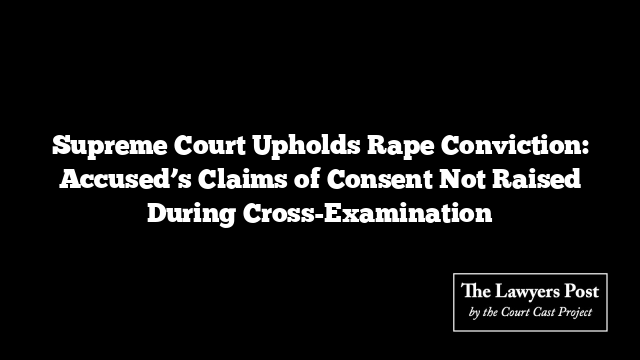In a significant ruling on a rape case, the Supreme Court has affirmed that the conviction of the accused cannot be overturned if their claims under Section 313 of the Criminal Procedure Code (CrPC) – asserting the victim’s consent – were not introduced during the cross-examination of the victim.
The bench, comprising Justices Abhay S. Oka and Ujjal Bhuyan, highlighted the importance of Section 313(4) of CrPC, which allows the accused’s answers to be used against them. They emphasized that if the accused’s statement mentions the victim’s consent, but this claim is not brought up during the victim’s cross-examination, it cannot be considered in isolation and must be weighed alongside the prosecution’s evidence.
In this case, the appellants, convicted of rape, claimed in their Section 313 statements that they engaged in consensual paid sex with the victim. However, this claim was not suggested to the victim during her cross-examination, thus depriving her of the chance to counter it.
The court carefully examined the victim’s cross-examination and noted the lack of any suggestion that the sexual intercourse was consensual. The prosecutrix’s testimony that the accused had forcibly engaged in sexual intercourse remained unshaken. The accused’s claim of a long-term paid sexual relationship was also not presented to the victim during the trial.
Drawing from the precedent set in State of Punjab v. Gurmit Singh, the court reinforced that the victim’s testimony should be accepted unless there is a strong motive for false implication. The court observed that the evidence of a rape victim should not be viewed with undue suspicion and that her testimony can be as reliable, if not more so, than other witnesses.
In conclusion, the Supreme Court dismissed the appeal, upholding the High Court’s decision to convict the accused, reaffirming that their claims of consent, unraised during cross-examination, could not undermine the victim’s consistent and credible testimony.





